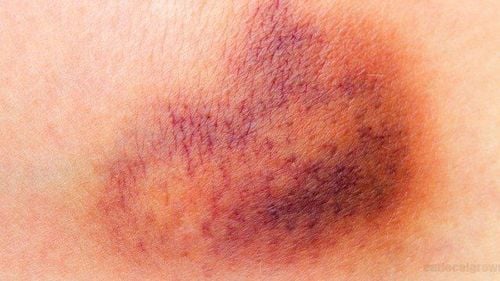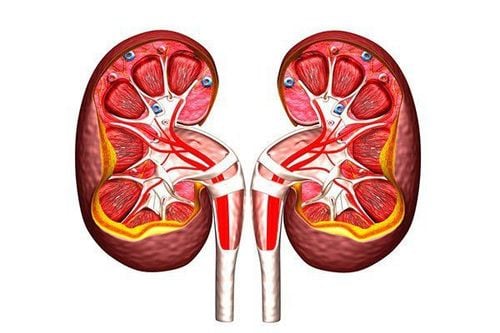MD, Specialist II,
Nguyen Khanh Nam
This article was professionally consulted with Doctor Nguyen Khanh Nam - Dentist - Maxillofacial - General Surgery Department - Vinmec Nha Trang International General Hospital
Jaw pain near the ear is a common condition. Some easily recognizable symptoms of this phenomenon are pain in or around the ear, pain when chewing, jaw stiffness, headache... The causes of this problem are quite diverse, requiring a specific examination.
1. When you have jaw pain near your ear, what other signs may you experience?
The phenomenon of jaw pain near your ear can be accompanied by many other signs such as:
- The jaw is painful and stiff.
- Pain inside or around the ear area.
- The patient has difficulty, aches and discomfort when eating
- There may be headaches, pain in the entire face.
- Opening and closing the mouth becomes difficult because of the stiff jaw joint .
2. When you have jaw pain near your ear, what health risks are you facing?
There are many problems surrounding jaw pain, each problem will have different health consequences.
2.1 Temporomandibular Joint Inflammation
The temporomandibular joint is the only movable joint in the skull and face, which supports jaw movements such as talking, chewing, swallowing, etc. If you have jaw pain near the ear due to temporomandibular joint inflammation, you will feel the pain occurring periodically, accompanied by muscle spasms and loss of balance.
This is a common disease and can occur in many groups of people, especially in women during hormonal changes such as puberty, menopause, etc.
Currently, the symptoms of temporomandibular joint inflammation can be listed as follows:
- The pain can occur on one or both sides of the face, often starting with mild pain that can go away on its own. However, as the disease progresses, the pain will become severe and continuous, especially when eating and drinking.
- Especially painful in the area inside and around the ear.
- The mouth and jaw move with difficulty and lack of flexibility.
- When moving your jaw, you can hear the cracking sounds of the jaw joints.
- Dizziness, neck pain, headache, temple pain.
- Hypertrophy at the site of the inflamed joint in the masticatory muscles, you can easily notice this because your face will look more bulging.

2.2 Temporomandibular dysfunction
Having pain in the jaw near the ear can also be a sign of temporomandibular dysfunction - a relatively rare disease but has many negative effects on patients.
When suffering from temporomandibular dysfunction, patients will feel abnormalities in the chewing muscles or temporomandibular joint, reduced efficiency when chewing and opening and closing the mouth becomes extremely difficult.
According to statistics, this disease only occurs in about 10% of the population, occurs in many groups of people, but only a few have symptoms. When recognized through symptoms, the disease tends to progress severely, with a high risk of joint damage if not treated promptly.
Symptoms of temporomandibular dysfunction include:
- Difficult to open the mouth wide.
- Muscle fatigue when eating or chewing, limited jaw movement, lack of flexibility.
- Pain in the chewing muscles, temporomandibular joint, gradually, the pain spreads to the entire head.
- Tinnitus, dizziness.
2.3 Jaw dislocation
Jaw dislocation is also a cause of jaw pain near the ear, often occurring when someone opens their mouth too wide suddenly (like laughing loudly). This condition comes from the patient's inability to control their actions.
Jaw dislocation can occur in anyone, but is not a disease, but just a condition that can be quickly remedied and does not leave dangerous consequences. However, if left untreated, this condition can become severe and hinder many daily activities.
Symptoms of jaw dislocation:
- Pain in many areas from the shoulder, neck, ear, face... and the pain occurs frequently.
- Tinnitus, in severe cases, can cause hearing loss.
- Pain to move the jaw.
- Neck movement is especially difficult.
- When eating or opening the mouth, there will be a clicking sound at the jaw joint.
Some methods to overcome jaw pain near the ear. For mild jaw pain near the ear, you may not need to see a doctor immediately. To improve the pain, you can try some of the following simple solutions:
- Hot compress
High temperatures can help relax the muscles, thereby effectively improving the feeling of pain and stiffness. However, if the jaw pain is accompanied by swelling and inflammation, you should try cold compresses. - Pain relievers
Some non-prescription pain relievers such as paracetamol / acetaminophen, ibuprofen... When using these drugs, make sure to follow the recommended dosage. In case you use pain relievers but still cannot improve the symptoms, this is a sign that you need to see a doctor. - Acupressure - massage
You can use your index and middle fingers to press on the painful area, massage this area in a circular motion for about 5 - 10 times, then move your mouth. Try this several times until the pain subsides.

2.4 Some limitations to note
To improve and prevent jaw pain near the ear, you need to limit the following issues:
- Limit lying on one side / placing your hand under the jaw when sleeping. This position can put pressure on the jaw muscles, causing pain on one side (jaw pain near the left ear or jaw pain near the right ear). In case one side is in pain, you should lie on the other side.
- Avoid tough and sticky foods, especially do not eat chewing gum.
It can be seen that jaw pain near the ear can be a sign of many diseases related to the joints. Therefore, when you notice that the pain is gradually increasing and cannot be improved by conventional measures, you need to see a doctor for an accurate examination.
Please dial HOTLINE for more information or register for an appointment HERE. Download MyVinmec app to make appointments faster and to manage your bookings easily.













